Laboratory medical tests play a crucial role in the diagnosis, monitoring, and treatment of various health conditions. These tests involve the analysis of blood, urine, tissue samples, or other bodily fluids to gather information about the patient’s health. The importance of laboratory tests cannot be overstated, as they provide healthcare professionals with vital insights to establish accurate diagnoses and develop appropriate treatment plans.
In what cases are laboratory tests important?
One of the primary benefits of laboratory tests lies in their ability to detect diseases or conditions at an early stage, often before noticeable symptoms appear. Early detection allows for rapid intervention, leading to better outcomes and potentially saving lives. For example, blood tests can identify biomarkers that indicate conditions such as diabetes, high cholesterol, or certain types of cancer, allowing timely intervention and treatment.
Laboratory tests also help monitor the progression of the disease and assess the effectiveness of treatment. By measuring specific parameters, such as blood cell count, hormone levels, or organ function, healthcare professionals can evaluate the response to therapy and make the necessary adjustments.
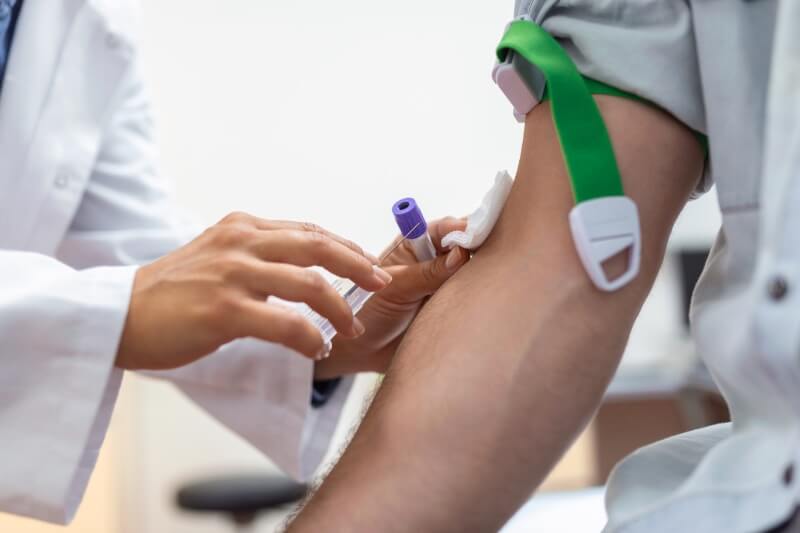
In addition to diagnosis and monitoring, laboratory tests are necessary for screening purposes. They allow the identification of risk factors or early signs of the disease even in asymptomatic individuals. For example, regular check-ups for conditions such as breast cancer, prostate cancer, or sexually transmitted infections help detect abnormalities early, facilitating timely interventions and increasing the chances of successful treatment.
Laboratory tests also help assess overall health and provide a basis for future comparisons. By analyzing various biomarkers and indicators, such as cholesterol levels, liver enzymes or kidney function, healthcare professionals can assess an individual’s general condition. This information is particularly important during routine check-ups and can guide lifestyle changes to improve better health and prevent future complications.
What do you need to know about blood testing?
Blood tests are medical procedures that involve analyzing a blood sample to obtain information about a person’s health.
They provide essential insight into a person’s overall health, helping healthcare professionals diagnose diseases, monitor the effectiveness of treatment, evaluate organ function, and screen potential health problems. They can detect a wide range of conditions, including infections, anemia, diabetes, liver or kidney disease, hormonal imbalance, and more.
Blood tests are carried out by a healthcare professional in a medical institution, usually a technician in a laboratory or outpatient clinic. The procedure involves taking a small blood sample from a vein on the arm using a needle and syringe or a finger prick. That blood sample is then sent to the lab for analysis.
The types of laboratory tests that are most often performed
Complete blood count (CBC)
This is one of the most common blood tests performed. It provides information on various components of the blood, including red blood cells, white blood cells and platelets. CBC helps assess general health, detect anemia or infection, and monitor responses to therapy.
Basic metabolic panel or comprehensive metabolic panel
They measure various substances in the blood, such as electrolytes, glucose, markers of kidney function (creatinine, nitrogen urea in the blood), markers of liver function (bilirubin, liver enzymes), and proteins. They help assess organ function, detect imbalances, and identify conditions such as kidney or liver disease, diabetes, and electrolyte disorders.
Lipid profile
The lipid profile measures blood cholesterol and triglyceride levels, which are important indicators of cardiovascular health. The lipid profile helps assess the risk of heart disease and direct lifestyle changes or medications to control cholesterol levels.
Blood glucose tests
These tests determine the level of sugar (glucose) in the blood. They are used to diagnose and monitor diabetes or assess glucose tolerance. These tests may include fasting blood sugar, random blood sugar, or an oral glucose tolerance test (OGTT).
Thyroid function tests
They measure hormone levels (such as TSH, T3, and T4) to assess thyroid function. They help diagnose conditions such as hypothyroidism, hyperthyroidism and monitor the effectiveness of thyroid therapy. These tests may also include the detection of certain antibodies involved in thyroid disease, such as Hashimoto’s thyroiditis or Graves-Bezedov disease.
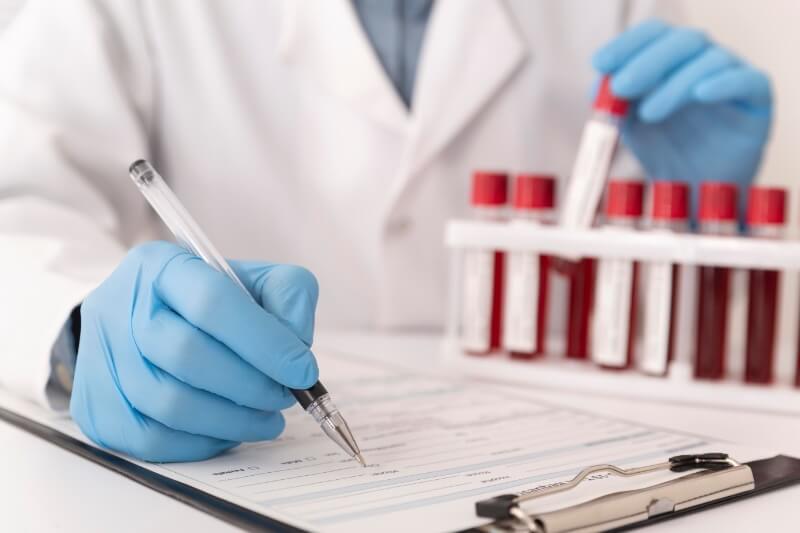
Tests for infectious diseases
Blood tests can detect the presence of specific antibodies or antigens in the blood, indicating infections such as HIV, hepatitis, Lyme disease or sexually transmitted infections (STIs).
Tumor markers
Certain blood tests can identify specific proteins or markers associated with certain types of cancer. Examples include PSA (prostate-specific antigen) for prostate cancer, CA-125 for ovarian cancer, or CEA (carcinoembryonic antigen) for colorectal cancer.
Blood tests in pregnancy
These tests measure levels of hormones, such as human chorionic gonadotropin (hCG), to confirm pregnancy and assess gestational age. It is important to note that the recommended specific blood tests may vary depending on age, gender, medical history, symptoms and assessment by a general practitioner or specialist. Consultation with a healthcare professional is necessary to determine appropriate blood tests based on specific health problems or screening needs.
Why is a laboratory test ordered?
Laboratory tests are ordered for various reasons, depending on the individual’s symptoms, medical history, and clinical evaluation of the doctor. Here are some common reasons why blood tests are ordered:
Establishing a diagnosis
Blood tests help healthcare professionals diagnose various medical conditions by assessing specific markers, substance levels, or identifying antibodies in the blood. For example, blood tests can help diagnose infections, anemia, hormonal imbalances, liver or kidney disease, autoimmune disorders, and genetic conditions.
Monitoring and treatment
Blood tests are used to monitor the progression of the disease or the effectiveness of treatment. By regularly measuring specific markers or substances in the blood, healthcare professionals can assess whether the treatment works or needs adjustments. Blood tests are commonly used to monitor chronic conditions such as diabetes, kidney disease or cancer.
Screening
Blood tests are used as part of routine health checks to detect risk factors or early signs of certain diseases. For example, a cardiologist may ask you to do a lipid profile used to screen cardiovascular risk, and blood glucose tests are used to screen diabetes.
Preoperative assessment
Before surgery or certain medical procedures, blood tests can be ordered to assess the general health of the patient, check any underlying conditions that might affect the procedure, and to ensure that the patient is fit for surgery.
Research
Blood testing in medical research enables the detection of biomarkers, the study of the mechanisms of disease, the evaluation of the effectiveness of drugs and the identification of genetic variations, contributing to advances in diagnosis, treatment, and general understanding of the disease.
Keep in mind that the specific reasons for ordering blood tests will depend on the individual circumstances, symptoms, and medical history. Healthcare professionals will determine the most appropriate blood tests based on the unique situation of each patient.
What are the consequences if the test is not done?
The consequences of not conducting a laboratory test may vary depending on the specific situation and the purpose for which the test was required. However, in general, failure to conduct a laboratory test when indicated can lead to potential negative outcomes, such as:
- Missed diagnosis: Laboratory tests often play a key role in diagnosing various health conditions. Without the necessary test, there is a risk of missing important diagnostic information, delaying appropriate treatment or misdiagnosis of the condition.
- Delaying initiation of therapy: Laboratory tests can provide valuable information about the progression of the disease, the effectiveness of treatment, or potential risks. Without these insights, there may be delays in starting necessary therapies or making informed decisions regarding the most appropriate therapeutic approach.
- Drug-related errors: Laboratory tests can help determine drug doses, evaluate drug interactions, or monitor drug levels in the body. Without these tests, there is a greater likelihood of improper management of drugs, which can lead to ineffective treatment, adverse reactions, or toxicity.
- Lack of follow-up: Laboratory tests are necessary to monitor chronic conditions, disease progression, or response to treatment. Failure to conduct regular tests may impair the effectiveness of monitoring the patient’s condition, potentially leading to an exacerbation of the disease.
- Missed opportunities for prevention: Laboratory tests are key to early detection and screening of various diseases. Without proper screening, there is a risk of missing opportunities for preventive care or early intervention, which can affect the effectiveness of treatment and general health.
It is always advisable to consult a healthcare professional to determine the necessity of blood tests and the potential impact of their non-implementation in a particular situation.
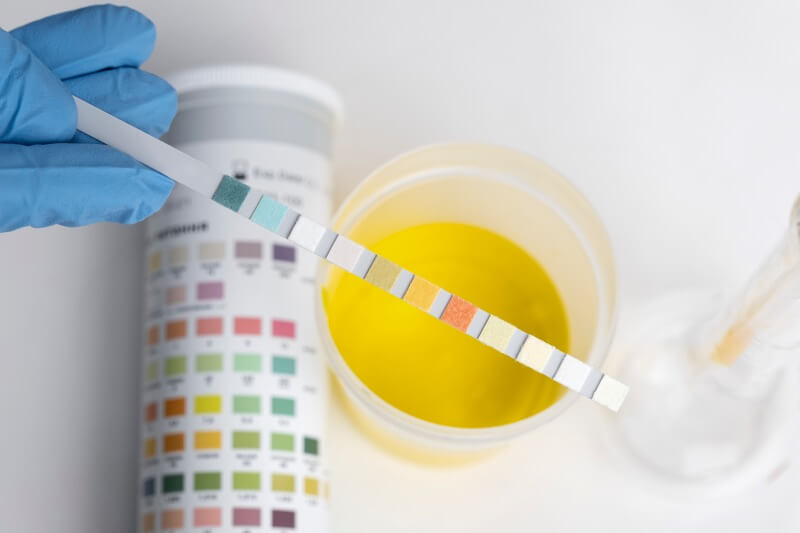
How good is the test at distinguishing a healthy state from a disease?
Laboratory tests are valuable tools to distinguish between a healthy condition and a disease. They provide objective measurements of various markers, such as blood cell counts, hormone levels, enzymes, proteins, or genetic material, which may indicate the presence of abnormalities or imbalances associated with certain diseases. Although blood tests are important diagnostic tools, they themselves cannot always give a definitive diagnosis. The interpretation of blood test results should be done in combination with other clinical information of importance, medical history, and additional diagnostic tests to accurately assess an individual’s health status.
How are the test results interpreted?
The results of laboratory tests are interpreted by healthcare professionals, such as doctors or biochemistry specialists, who analyze the values and patterns obtained from the tests. The interpretation involves comparing the results with established reference ranges, which are usually based on the general population or specific demographics of patients.
The interpretation takes into account various factors, including the patient’s medical history, symptoms, physical examination findings and other relevant diagnostic information. Abnormal test results outside the reference range may indicate the presence of a disease or condition, as well as show the severity of the condition.
The interpretation of the results of laboratory tests requires clinical expertise, as it involves considering the context of the individual patient’s situation. A single abnormal result may not always mean a significant health problem, and further trials or clinical correlation may be necessary to make a definitive diagnosis.
It is important to note that the interpretation of the results of laboratory tests should be carried out by qualified healthcare professionals who have the knowledge and expertise to understand the implications of the results in the wider clinical context of the patient’s health.
Dietary regimen for blood testing
Before the test itself, it is generally recommended that you follow the instructions or guidelines of the doctor who you will receive. However, here are some general tips that can help you prepare for a blood test:
Starvation
Certain blood tests, such as a lipid profile or glucose tests, may require you to fast beforehand. Fasting from 8 to 12 hours is usually advised, which means avoiding food and drink (other than water) during this period. It is essential that you adhere to specific fasting instructions given to you by a healthcare professional.
Hydration
It is generally recommended that you stay well hydrated by consuming a sufficient amount of water before the blood test, unless otherwise indicated. Adequate hydration can facilitate blood draw.
Medications and supplements
Talk to your doctor about whether you should resume or temporarily pause any medications or supplements before a blood test. Some medications or supplements may interfere with test results and adjustments may be required.
Alcohol and caffeine
Talk to your doctor about whether you should resume or temporarily pause any medications or supplements before a blood test. Some medications or supplements may interfere with test results and adjustments may be required.
Mealtime
If you are not obliged to fast, scheduling a blood test earlier in the morning can be beneficial, as it allows for accurate basic measurements before taking food.
Restrictions on nutrition
In certain cases, such as allergy testing, certain dietary restrictions may be recommended before the blood test. Follow any instructions given by a healthcare professional regarding modifications or dietary restrictions.
It is important to note that these are general guidelines, and specific instructions may vary depending on the type of blood test, individual health conditions and doctor’s recommendations. Always consult your doctor or laboratory regarding any specific dietary instructions or restrictions regarding your blood test.
How reliable are laboratory tests?
Laboratory tests are generally considered very accurate, but accuracy can vary depending on several factors, including the specific test being performed, the laboratory conducting the test, and the quality of the sample collected.
Sensitivity and specificity
Sensitivity refers to the ability of a test to correctly identify individuals who have a particular condition, while specificity refers to its ability to correctly identify people who do not have the condition. Higher sensitivity and specific values indicate greater accuracy for detecting the true positives, i.e., the real negatives.
Types of tests
Different laboratory tests can have different levels of accuracy. Some tests have well-established accuracy rates based on extensive research and validation studies, while others may have more variability or limitations in their accuracy due to factors such as sample quality or variation in individual physiology.
Laboratory reliability
The accuracy of laboratory tests may also depend on the quality and reliability of the laboratory conducting the test. Accredited laboratories that follow standardized protocols and go through regular quality assurance measures usually have higher accuracy rates.
How sample is handled
The accuracy of laboratory tests may be affected by the quality and handling of the sample. Errors in sample collection, transport or storage can potentially affect test results. It is important to follow the correct sample collection procedures to ensure accurate results.
Interpretation and clinical context
An accurate interpretation of the results of laboratory tests requires the knowledge and expertise of healthcare professionals. Test results should be interpreted together with other clinical information, medical history, and additional diagnostic tests to gain a comprehensive understanding of the patient’s health status.
Imprecision of tests
While laboratory tests generally provide reliable and accurate information, it is important to emphasize that no test is 100% perfect. False positives or false negatives may occur in certain circumstances, and there may be limitations or inherent variability associated with specific tests. Regular quality control measures, validation studies and ongoing research help to continuously improve the accuracy of laboratory tests.
How to deal with anxiety due to medical tests?
Coping with anxiety before medical testing is a common experience for many people. Here are some strategies that can help you cope with anxiety in such situations:
Look for information: Educate yourself about the specific medical test you are undergoing. Understanding the purpose, procedure, and expected test results can help alleviate anxiety by providing a sense of control.
Communicate with healthcare professionals: Discuss your worries and anxiety with your doctor. He can provide you with security, explain the procedure in detail and answer any questions or fears you may have. Open communication can help relieve anxiety and build trust.
Practice relaxation techniques: Do relaxation exercises such as deep breathing, meditation, or progressive muscle relaxation. These techniques can help you calm your mind and body, reduce stress and encourage relaxation before the test.
Distractions: Engage in activities or hobbies that can distract your mind and help you shift your focus away from anxious thoughts. Reading a book, listening to music, watching a movie or participating in fun activities can be an effective distraction.
Support Network: Get support from family, friends, or support groups. Sharing your feelings and concerns with others who understand can provide comfort and emotional support during this period.
Imagine a positive outcome: Imagine a positive outcome or visualize yourself successfully passing a medical test. Positive visualization can help reduce anxiety and create a more optimistic mindset.
Be well informed: Make sure you follow any pre-test instructions given to you by a healthcare professional, such as fasting or other restrictions. Being prepared and following the guidelines can help reduce anxiety about test results.
Get involved in self-care: Prioritize self-help activities such as getting enough sleep, eating healthy, engaging in physical exercises, and practicing stress management techniques. Taking care of your overall well-being can help reduce anxiety levels.
Distractions during testing: During the test, you can interfere by focusing on deep breathing, or listening to soothing music. Communicate with healthcare professionals conducting the test if you have certain concerns or requirements during the procedure.
Remember that it’s normal to feel anxious before a medical test, but applying these strategies can help you reduce anxiety. If anxiety persists or significantly interferes with everyday life, consider seeking professional support from a psychologist.
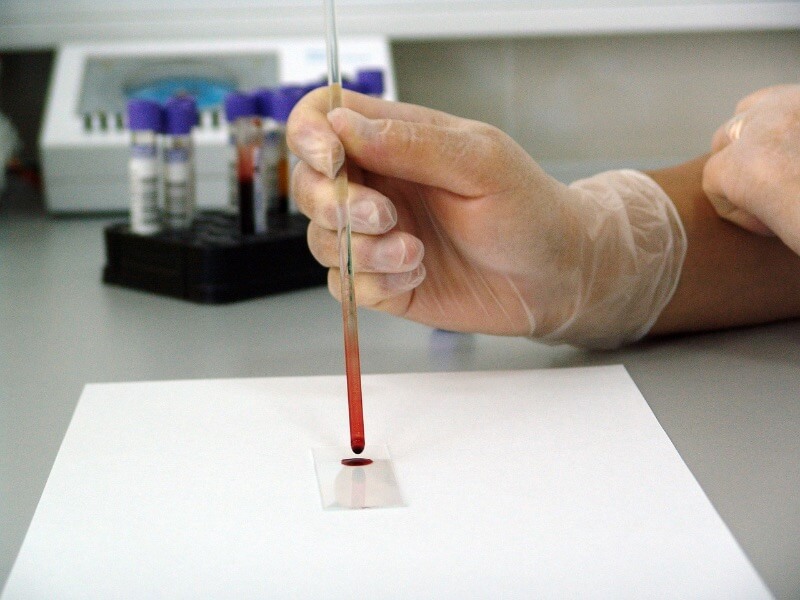
Reference range for interpreting laboratory test results
Reference intervals, also known as reference ranges or normal ranges, are established ranges of values for specific laboratory test results commonly observed in healthy populations. They serve as benchmarks for comparing individual test results and determining whether they fall within the expected range for a particular test.
Reference intervals provide a framework for interpreting test results and help healthcare professionals assess whether the value of the test is within the expected range for a healthy person or is out of the norm. They are usually determined by analyzing samples from a large group of healthy individuals and determining the central tendency (e.g. mean or median) and spread (e.g., standard deviations) for a particular test.
Reference intervals may vary depending on factors such as age, gender, ethnicity and health status. In some cases, different laboratories or institutions may have slightly different reference intervals based on their specific population demographics or testing methodologies.
When interpreting test results, healthcare professionals compare the resulting value with the reference interval to determine whether it is within normal limits or if further testing is required. Results that are outside the reference interval may indicate the presence of a medical condition, although further clinical evaluation and additional tests are often necessary for a definitive diagnosis.
It is important to note that reference intervals are not absolute limits and should be considered with other clinical information, individual characteristics of the patient and the assessment of the healthcare professional when interpreting the results of laboratory tests.
Home tests
Home tests are medical tests that individuals can perform in the comfort of their home without having to go to a health facility.
Various types of home tests are available, including pregnancy tests, ovulation tests, cholesterol tests, glucose tests, DNA tests, and more. These tests usually come with detailed instructions and materials necessary to collect and analyze samples.
While home tests offer convenience, the following facts should still be considered:
- The accuracy of home tests may vary depending on the specific test and the manufacturer. It is important to choose as accurate tests as possible and carefully follow the instructions to get accurate results.
- Home tests may have limitations in terms of the extent of information they can provide compared to tests performed in a laboratory. They may give preliminary or indicative results, but confirmation or further evaluation by a healthcare professional may be required.
- Interpreting the results of the home test requires an understanding of the given guidelines and reference ranges. It is essential to be aware of the limitations of self-interpretation and seek professional medical advice if there are doubts or questions regarding the results.
Home tests are usually intended only for screening or monitoring and cannot replace comprehensive medical care. It is important to consult a doctor regarding the evaluation, confirmation and taking further steps based on the results of the test.
Stool tests
Stool testing involves the analysis of a stool sample to assess various diseases and conditions, such as detecting gastrointestinal infections, assessing the health of the digestive tract, identifying parasites, bacteria or viruses, assessing inflammatory bowel diseases or screening for colorectal cancer. The sample is collected and sent to a laboratory, where it is analyzed with various methods such as microbiological, biochemical, and molecular techniques, to provide insight into the health of the individual’s gastrointestinal tract and help diagnose and plan treatment.
In some cases, especially when it comes to diagnosing infection, you will need to take three consecutive stool samples (24 hours apart).
To collect a sample of the testing chair, follow these steps:
- Get a special sterile plastic container with sampling porridge: The chair must be fresh, not older than 24 hours and the sample must not have any admixtures of urine, water, paper, medicines, or any other substances. In order to avoid contamination of the sample, it is best to defecate in a clean container or on a special stool collection cartridge.
- After defecation, collect the sample using a teaspoon attached to the lid of the container. It is necessary to collect samples from different parts of the stool, including solid and liquid parts, and it is especially important to collect a sample of pathological admixtures if you notice them (mucus, blood, pus).
- Close the container tightly to prevent any leakage during transportation. Mark the container with your name, date of collection and all other necessary information.
- Some tests may require special storage conditions or a transport medium. Follow the laboratory instructions regarding storage temperature, duration, and mode of transport.
- Deliver the collected stool sample to the indicated laboratory as soon as possible, best 2 hours from sampling and a maximum of 24 hours. Until transport, keep the sample in the refrigerator at a temperature of 2 – 8 °C.
It is important to note that specific instructions may vary depending on the type of stool test and the requirements of the laboratory or healthcare professional. Always look at the specific instructions of the laboratory or consult your doctor for exact guidelines on how to properly collect and handle a stool sample.
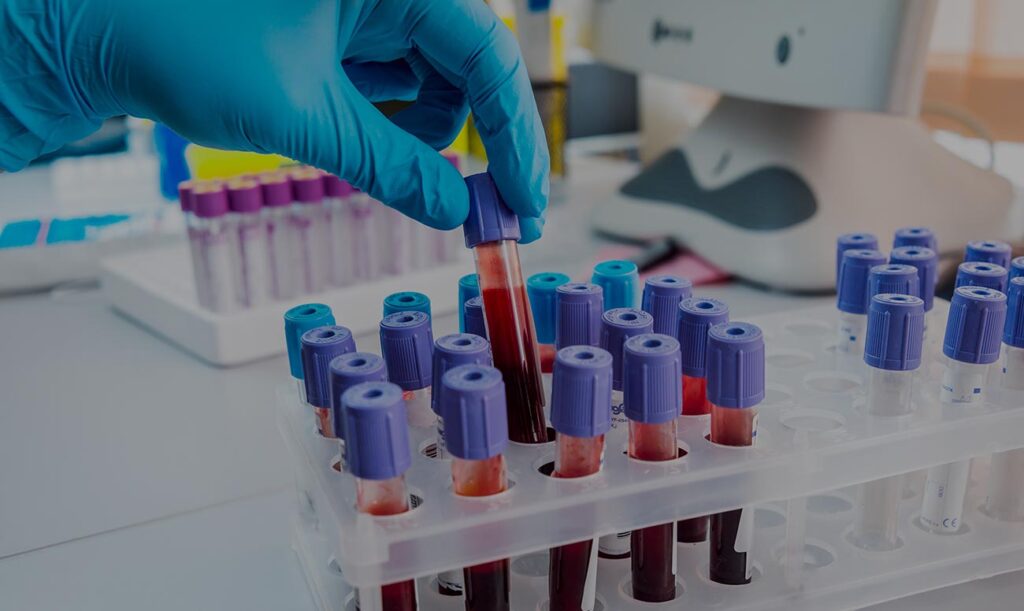
Venous sampling
Taking blood from a vein, also known as phlebotomy, is a common procedure performed to collect a blood sample for diagnostics or testing purposes. Here’s a general overview of the procedure and what you can expect:
Preparing
Usually, no special preparation is required to take venous blood samples. However, it is important to inform your healthcare professional of any medications, allergies or medical conditions that may affect the procedure or interpretation of the results.
Identification and consent
A healthcare professional will verify your identity, usually by checking your name and date of birth, and explaining the procedure to you. You may be asked to give consent for a blood draw.
Positioning
You will be asked to sit comfortably or lie down, with your hand outstretched and your palm turned upwards. A healthcare professional usually chooses a vein on the inside of the elbow or the back of the hand to draw blood.
Site preparation
The selected site will be cleaned with an antiseptic solution to reduce the risk of infection.
Needle insertion
A healthcare professional will put a blindfold above the intended venipuncture site to make the veins more visible and accessible. They will then use a sterile needle attached to a syringe or vacuum tube system to pierce a vein and take a blood sample. You may experience a mild sting or mild discomfort during the introduction of the needle.
Blood collection
When the needle is inserted, blood will flow into a syringe or vacuum tube. The health care worker will fill the required amount of blood into the test tubes.
Needle removal and applying pressure
After taking a blood sample, the healthcare professional will remove the needle from your vein and apply a slight pressure to the injection site with sterile gauze or cotton wool to prevent bleeding.
Care after the procedure
You need to apply pressure to the puncture site for a few minutes to relieve clotting and reduce bruises. A bandage can be put on when the bleeding stops.
Disposal and labeling
The healthcare professional will appropriately dispose of the used needle and mark the collected blood samples.
You may notice bruises, pain or sensitivity at the injection site after the procedure. These symptoms are usually mild and usually disappear within a few hours.
It is essential that you follow any instructions you receive from a healthcare professional after the procedure, such as avoiding lifting heavy loads or strenuous activities involving the hand from which the blood was drawn, in order to speed up healing and reduce the risk of complications.


